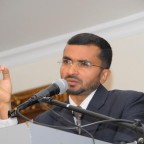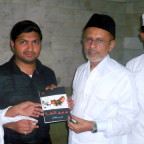Dr Wasim Ahmad
Department Head of Islamic Studies
Preston University Ajman
It is noticeable in Qur’an that it avoids spoonfeeding – leaving a lot of room for reflection and for lessons to be learnt. It obligated the man of over 1400 years ago to think. How much it requires this exercise from the modern man of today is anyone’s guess. This Qur’anic methodology needs to be more intensely incorporated in our education system. When Qur’an obligates the human beings to reflect, it means thinking differently. It means arriving at greater realities processing the data and the bits and pieces of information available in our surroundings.
In this time and age when there is so much to read we may increasingly require shorter write-ups. May be we need to leave a lot of room for reflection. We may be required to share our thoughts about the principal issues and leave the micro level details for the people to figure out and manage. (May be this very issue needs to be written about more extensively!) This is why it was argued that we need a VISION – clearly defined and effectively communicated to all. The VISION will serve as a common thread and as a criterion to see if the things are aligned to it or not.
Focusing on the core issues and expressing our ideas briefly requires a bit harder work and more time. I often recall a response of Maulana Muhammad ‘Ali Jauhar (can’t remember the source). He was asked why did he write very long articles for Comrade and Hamdard? He responded that he wrote long write-ups because he was extremely busy and had no time to write shorter articles.
Learning from the methodology of Qur’an let us try our best to reach out to the principles and the realities behind the apparent happenings. Let us find out more about the “inductive reasoning”, which Iqbal equates with the birth of Islam and which we have forgotten – overflooded with information.



